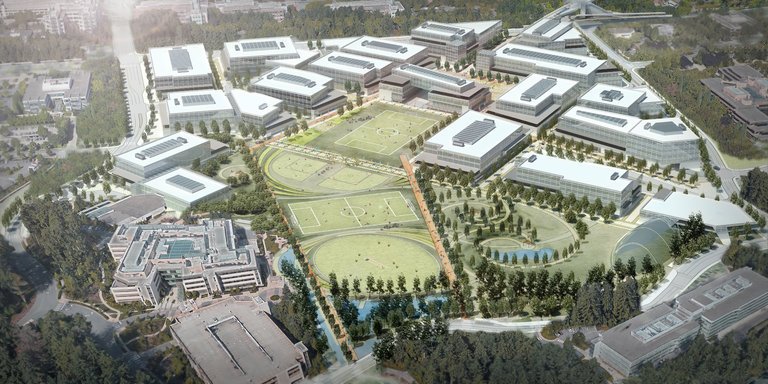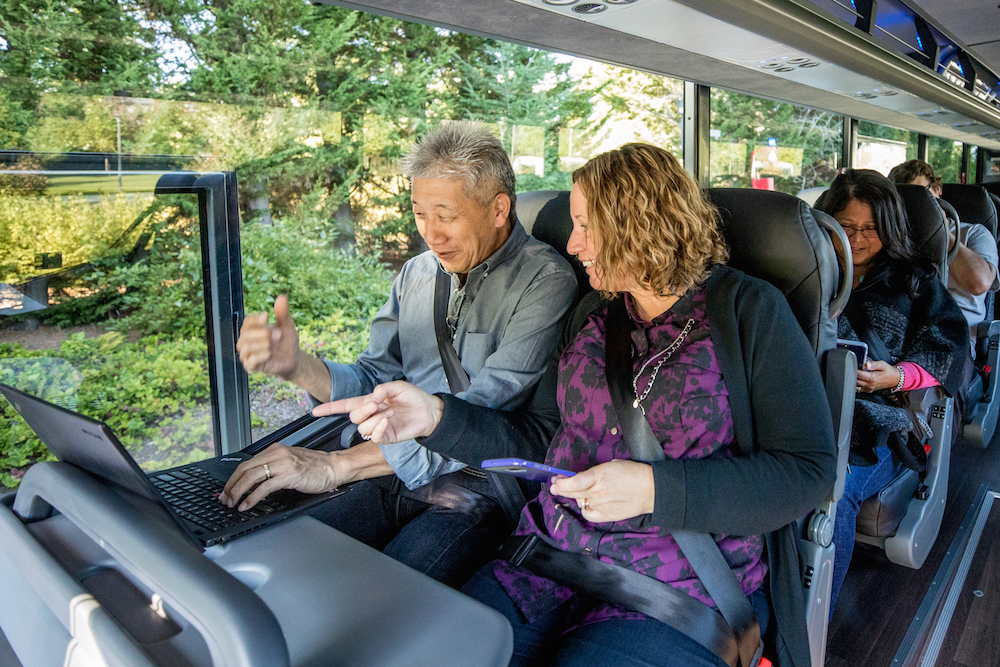This article is excerpted from the author’s LinkedIn page.
At Microsoft, our Connector Commuter Bus (pictured above) recently had its 10th anniversary.
And that’s just one of the things worth celebrating in the company’s commuter program.
Microsoft’s Puget Sound campus in Seattle is like a small city, with buildings, roads, infrastructure, and 44,000 people. How to responsibly get those occupants to, from, and around that small city has been a priority for Microsoft Real Estate and Facilities (RE&F) for going on three decades. During that time, Microsoft’s web of transportation services – the Commute program – has decreased total carbon emissions generated by its commuting employees by 69.3 million pounds.
Good for traffic congestion, good for reducing employee stress – and great for the environment.
 In the U.S., driving alone to work is declining. Still, by the last available census data, only 24 percent of the U.S. workforce chose carpooling or mass-transit options. At Microsoft, 43 percent of workers do: 19,000 employees using alternatives to driving alone on any given day.
In the U.S., driving alone to work is declining. Still, by the last available census data, only 24 percent of the U.S. workforce chose carpooling or mass-transit options. At Microsoft, 43 percent of workers do: 19,000 employees using alternatives to driving alone on any given day.
These alternative options cover a wide array of choices. Microsoft’s Seattle employees are given subsidized transit passes, providing unlimited rides on buses, trains, and water taxis. They also get a Guaranteed Ride Home. Carpoolers and vanpoolers enjoy preferential parking, and ride-matching and other support. Microsoft garages hold electric car-charging stations. More than 200 shuttle vehicles (including hybrid and electric) transport employees around campus or off-campus to transit hubs. Zipcar, a carsharing option on campus, allows employees daytime access to a car, for errands or meetings, at a discount.
To help employees make the most of these benefits, RE&F created a pilot program, “MERGE“ (an acronym for Manage, Explore, Reserve, Go Everywhere), a mobile-friendly tool which puts all Microsoft Commute Services together in one place, allowing employees to plan trips and to book shuttles and Connectors. There are even programs to help compensate bicycle commuters for the costs of purchasing and maintaining their bikes.
While lots of companies offer commuting support, it’s Microsoft’s deep bench of choices that makes it noteworthy.

The crown jewel is Microsoft Connector, the private bus service that began 10 years ago with five routes and has grown to 23. And continues to grow. Today, a network of 94 Connector stops transport an average of 4,300 employees to and from work each day – up from 3,600 a year ago.
Microsoft Connector is meeting a need. Many Connector commuters use the time to check email and take care of other work tasks, thanks to the WiFi connectivity and AC power at the seats.
But there’s a bigger advantage still. Taken together, the services offered by Microsoft’s Commute program eliminated 7.63 million single-occupancy car trips to and from the Puget Sound campus in 2016.
Saving time and saving energy – not a bad achievement for Microsoft’s commuters.